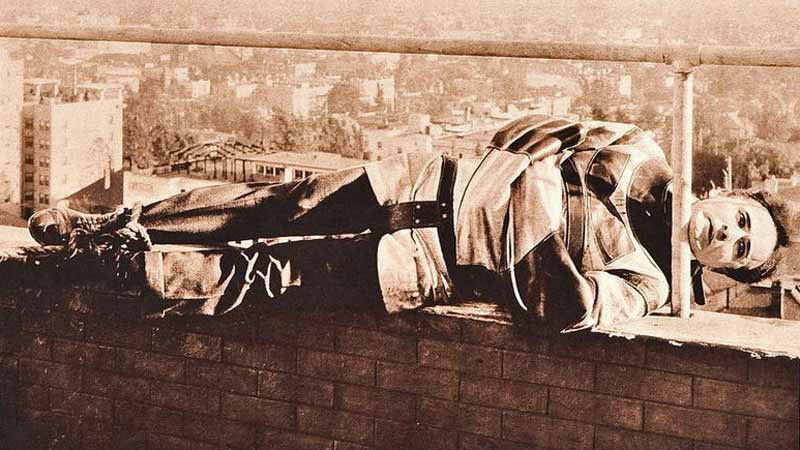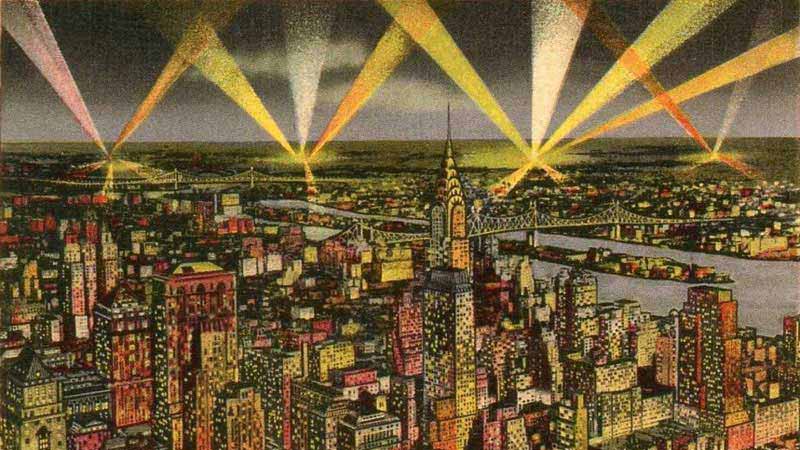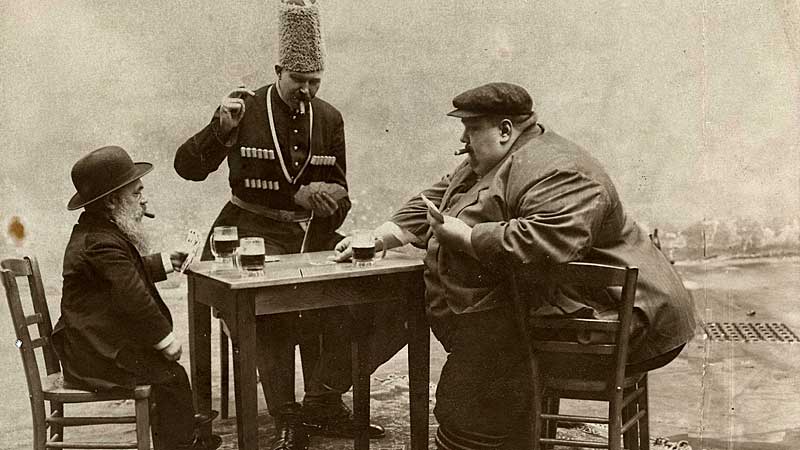Benjamin Barnes "Lessons Learned from an Entertainment Director" Podcast Interview
by Roland Sarlot and Christian Painter
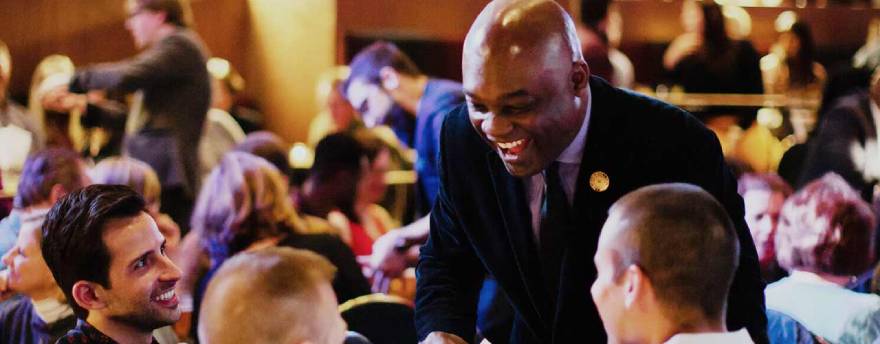
What We'll Explore
After hiring many hundreds of performers, Benjamin Barnes shares his perspective of what audiences want, what magicians should offer, the importance of reading magic history, performing over and over, sharing your character with the audience, and when to use a magic venue to improve your act.
Who is Benjamin Barnes?
Benjamin Barnes was partner in the twelve-year monthly Magic Chicago, where he performed and booked acts. Since then, he's been the entertainment director for Chicago's number one nightlife destination, the Magic Lounge, where he is in charge of hiring and mentoring acts. Benjamin is a full-time performer that has played at every major magic venue across the United States.
Running Time:
The following interview has been edited and condensed for clarity.
What you can do
You are welcome to share up to 500 words of the below transcript in a non-commercial purpose provided you credit and link back to our site like this: "The Magic Oracle Business Podcast".
The Interview
Roland Sarlot: On this insightful episode of the Magic Business Podcast...
Benjamin Barnes: Magic is about mystery as we know it but it also about imagination and we need to provoke those things. We need to tickle people's imagination. We need to make it about more than the magic trick. Magic tricks are great, but there is so much more that you can add to it.
Roland Sarlot: Welcome to the Magic Business Podcast, where we share insightful and delightful inner secrets about the business of magic. This is where magic professionals present their real-life experiences and some of their most guarded secrets to help further your career in the magical arts. I'm your host, Roland Sarlot, in partnership with the MagicOracle.Club, where you can hear all of our Magic Business Podcasts.
Chicago is known as one of America's great magic cities. And one of the men steering who is performing today is Benjamin Barnes. He was partner in the twelve-year monthly Magic Chicago, where he performed and booked acts. For the last three years, he has been the entertainment director for Chicago's number one nightlife destination, the Magic Lounge, where he is in charge of hiring and mentoring acts, as well as performs in all of their theatres. Benjamin is a full-time performer that has played at every major magic venue across the country, and views his purpose on earth to make magic and magicians, loved by audiences everywhere. Benjamin welcome to the Magic Oracle.
Benjamin Barnes: Thank you so much Roland, I am so excited to be here. Thank you for having me.
Roland Sarlot: I am excited to have you here. You have a ton of experience Benjamin, and I wanted to talk about it. In particular, let's go back a little ways to when you were at Magic Chicago. You are one of the founders. What was Magic Chicago?
Benjamin Barnes: Magic Chicago was Chicago's longest running monthly magic show.
Roland Sarlot: What did it consist of? Multiple acts? One act? How did that go? What was the format?
Benjamin Barnes: Well, yeah sure. There were three performers, so we had an opening act, it was typically local, followed by another local act. And then we would close more often than not with a visiting magician from someplace far away. From another country or some other state in the United States, but what made these people special is they were representative of the best magicians working at that time.
Roland Sarlot: And how long did Magic Chicago run for?
Benjamin Barnes: That went on for twelve years.
Roland Sarlot: That's a long time. Congratulations! You survived. Now did you book all of those acts?
Benjamin Barnes: The vast majority of the acts, yeah.
Roland Sarlot: You have a lot of experience in that.
Benjamin Barnes: Oh yeah, Oh yeah.
Roland Sarlot: Today you are at Magic Lounge in Chicago. What is the Magic Lounge?
Benjamin Barnes: Well the Chicago Magic Lounge is a global destination for the performance of magic. As you mentioned moments ago, it is the number one nightlife destination in the city, but it is really a venue comprised of three smaller spaces where people can experience the richness of the magical arts. So we have a bar where there is bar magic, a performance bar. We have a 120 seat cabaret theatre where people can see magic at the tables. But also our stage show. We also have a 47 seat close-up magic theatre.
Roland Sarlot: That's quite a lot. And you kind of cover all the different faces that magic encompasses as well.
Benjamin Barnes: Yes, yes. So I book all those spaces and my goal on a given night is to give someone who has never seen magic before an idea of just how expansive magic is as a performing art.
Roland Sarlot: And you book all of them you said?
Benjamin Barnes: I book all of them.
Roland Sarlot: So for three years?
Benjamin Barnes: Uh huh. Yup.
Roland Sarlot: I've seen a lot of the photos. I have not been there, but this is a huge and beautiful establishment. This is multi-million dollars?
Benjamin Barnes: Yeah.
Roland Sarlot: OK, you don't want to say the amount, but it is big. So that is a lot of responsibility on those two shoulders of yours.
Benjamin Barnes: Yup. I have a great team, but yeah, there is definitely a lot of responsibility.
Roland Sarlot: If those performers don't cut it, that rests on you.
Benjamin Barnes: For sure.
Roland Sarlot: That's huge. So you've booked hundreds, thousands of acts in your career?
Benjamin Barnes: Over the course of the last 16 years, hundreds. Yeah. Several hundreds for sure.
Roland Sarlot: In the hundreds, right.
Benjamin Barnes: Yup.
Roland Sarlot: So you are a performer, even on top of these jobs that you have, you are still performing in Chicago.
Benjamin Barnes: Yes.
Roland Sarlot: You've hired many hundreds of acts. I'm sure you have seen quite a bit more than that.
Benjamin Barnes: Yes.
Roland Sarlot: So Benjamin, what I want to know is, what have you learned?
Benjamin Barnes: Well, I've learned a lot actually. But one of the main good things that I've learned is that audiences really crave magic, a magical experience. Now prior to the Chicago Magic Lounge opening, there was nothing of this scale in the city of Chicago. We are the number one nightlife destination in the third largest market in the United States. And I always say that people love magic, but they don't know it until they have an opportunity to see it. And that's what we've done at Chicago Magic Lounge. We've given people an opportunity to fall in love with this thing that they didn't know they wanted.
Roland Sarlot: What does the audience want to see?
Benjamin Barnes: The audiences for magic shows... The one thing that I've discovered is that most people who go to see magic, period, have never seen it live before. So they want to experience what they think magic is because they really don't know. So they want a fantastic experience. They want to see things that they've never seen before. They want to experience impossible things, fantastic things, without really knowing what it is that magicians do. And part of my job is to not only fulfill those expectations, but to exceed them through the curation of our shows. Through the acts that I book for our venue.
Roland Sarlot: So in a way you are a magician just filling out these different positions in an evening.
Benjamin Barnes: Oh yeah.
Roland Sarlot: Audiences want magic, they don't know what it is.
Benjamin Barnes: No.
Roland Sarlot: And yet you got to find magicians to fill that job.
Benjamin Barnes: Yup.
Roland Sarlot: Are magicians filling that job?
Benjamin Barnes: Well, I would say that the vast majority of magicians are good entertainers. I would say the prevailing trend in magic performance currently is that of comedy magic, so they are people who are maybe somewhat funny, who are doing magic tricks. But there aren't very many magicians. People who are trying to give people that experience of the fantastic, of the awe-inspiring. Those people are very few and far between. Fortunately, audiences enjoy both, and there are enough magicians currently working today where you can still satisfy that for audiences.
Roland Sarlot: Sure I understand in that all of your audiences are going to have a great night. I know a lot of the performers there, and we've talked about who performs there. But if we are trying to get to the magic with a capital M, that magical experience that may be the holy grail of what a performer should do, what does a magician need to do to better deliver that?
Benjamin Barnes: I think there is as many different answers to that question as there are magicians. I think a good starting point however is to realize that magic tricks and magic are not the same thing. A magic trick is something that you can envelope in magic to create that experience for the audience. Magic is about mystery as we know, but it is also about imagination, and we need to provoke those things. We need to tickle people's imagination. We need to make it about more than the magic trick. Magic tricks are great, but there's so much more than you can add to it. And I think the best magicians give more to their performance than just a competent execution of the magic trick.
Roland Sarlot: So when you say mystery and imagination, you are really talking about a level of creativity beyond the technical.
Benjamin Barnes: Yes. Yeah, absolutely. You must have the technical. You have to, but beyond that, you have to transcend the technical and go into the imaginative. And the word I like to use is the fantastic. And we can do that as magicians doing card magic. Believe it or not, you can make that simple magic bag into a much larger event through performance and creativity.
Roland Sarlot: If someone was asking you, "Through your experience and what you've seen, what are the three most important things an act can do to improve?"
Benjamin Barnes: The three most important things an act can do to improve I think one, would be to develop a working knowledge or understanding of magic history. People have been doing magic for thousands of years. And they left a lot of clues, and I think if you want to improve your magic, one place to start is by learning from the lessons that they left us.
Roland Sarlot: Do you have any favorite books you would recommend?
Benjamin Barnes: Absolutely. I would have people read The Illustrated History of Magic. It's a fantastic book and there is a lot of wisdom in that book. Magic and Meaning by Robert Neale and Eugene Burger will give you a context for what magic not only means to people, or meant to people in the past, what it can mean to people now. And why people... It gives you a sense of why people are attracted to magicians in the first place. And I think that is something that most magicians don't think about or they don't understand. And I think if they did, they would realize that their job is so much bigger than just fooling people. So I would recommend those things. And then aside from learning the history of magic, I would encourage magicians to perform as much as you possibly can, because the audience as you know, is one of our best teachers. They tell us not only what works in terms of our performance, what they are connecting with, but audiences will teach you what it is that they want. Like I said earlier, the audience comes to the show wanting magic. If you pay attention they will tell you what that is. They will tell you what it is that they are looking for, and then you can develop ways to deliver, but that is something you can't read in a book, you can't buy it in a magic shop, you have to get up and perform as much as you can. And the final thing I would say performers can do to improve is to look for ways to connect who they are to what they are doing. What things do you love that you can discuss through your performance? What are the things that you think about? What are the things that you find magical that you can express in your performance? And I think if you can do that, people will feel it, and they can connect to it too.
Roland Sarlot: Well those are great. You know it is interesting. Those are three suggestions that really start from the very large, which is the macro perspective of history, going to the present which is the performing so you learn the nuts and bolts, and audience interacting and connecting. Then to going into the personal, call it character or putting your heart into it to really connecting as a human.
Benjamin Barnes: Yup.
Roland Sarlot: How does one use a magic venue to improve their act?
Benjamin Barnes: What... I'll give you a couple ways performers use a magic venue to improve their magic act. One goes back to the previous question. I think it is just a place to perform. To experiment and to learn from the experiences of performing there. And another great thing about a magic venue is that you are around other magicians, who are also doing the same thing. So you can collaborate. You can have another set of eyes watch what you are doing and get outside feedback. I think those are the best ways to use a magic venue to improve.
Roland Sarlot: I've heard two arguments about going to a magic venue. Some say bring material that you are working on, because you get a lot of time to rehearse in front of a live audience and then you can work it out. And then other people say no, no, no, don't ever do that. You go to a magic venue to show your best and to do a great job. That's not the place to experiment and use up the audiences and make your mistakes. How do you feel?
Benjamin Barnes: I would say yes and no and I'll elaborate briefly. So I would say the material you present in a magic venue... Because this venue is not a place to be bad. You cannot be bad at the Chicago Magic Lounge. You cannot be bad at the Magic Castle if you want to continue to work there. But, there's a difference between a seasoned professional experimenting versus someone who doesn't quite know... Haven't figured it out yet. Penn and Teller experimenting in their show is still a good show. Maybe it is not the best show, but it is still good. And people who are seasoned enough know how to experiment in a way that is safe, that will still deliver an entertaining experience, but one that they can continue to improve with time.
Roland Sarlot: So it depends on what level you are at.
Benjamin Barnes: Totally.
Roland Sarlot: If you are a beginner, bring the best stuff you have.
Benjamin Barnes: Yes. Or if you are not sure if something is going to work, don't bring that. But there are people who come here and I know they experiment with new material, but they know at the very least people will like it. They may not love it, but they will at least be able to enjoy it and be entertained by it, on some level.
Roland Sarlot: And you better have it good enough that Benjamin is going to be happy, and not give you the wrath.
Benjamin Barnes: And also good enough so Benjamin won't be fired.
Roland Sarlot: Don't want that to happen!
Benjamin Barnes: Yeah. Totally.
Roland Sarlot: As you know, all the Magic Business Podcasts can be heard on the MagicOracle.club, however today Benjamin you are our guest Oracle. That person with great wisdom, knowledge and insight, so I'd like to ask you Oracle Benjamin, what is the most important question a performer should ask you, but they never do?
Benjamin Barnes: The most important question a performer should ask me, but they never do, is, "What could I have done better?" The number of times I've gotten that question I can't remember. That's not a question I hear very often. And I think that is the most important question.
Roland Sarlot: Which is a huge question. You are saying, "How do I get better? How do I learn? Am I a student or do I know it all?"
Benjamin Barnes: Yeah, exactly. I think everybody is a student no matter how great you are, you know there is always room to grow. And it is all connected Roland. Especially if you understand something about the history of magic, one of the things that that does is it keeps your ego in check. Because if you know who Servais LeRoy is, or Theodore Bamberg is, you know that's not you, and that you have a long way to go. And you embrace that journey of continued growth, so you are always asking, "What can I do to make that a little bit better? How can I grow just a tiny bit as a result of having done a performance?" And I very rarely hear that question. I can't remember the last time I heard it.
Roland Sarlot: Well that's huge advice. Benjamin, thank you for sharing your years of experience with us.
Benjamin Barnes: Thank you Roland. It was a pleasure. Thank you so much.
Roland Sarlot: And thank you for listening to our "Magic Business Podcast". Please visit the MagicOracle.Club where you can hear all of our Magic Business podcasts and enjoy a vast array of additional magical knowledge. I'd like to leave you with a quote that's short in words but long in meaning from master performer and legendary showman, Harry Houdini. He said, "It's not the magic, it's the magician." As always we at the Magic Oracle wish you great success on your path in the magical arts.
A Jolly Genie?
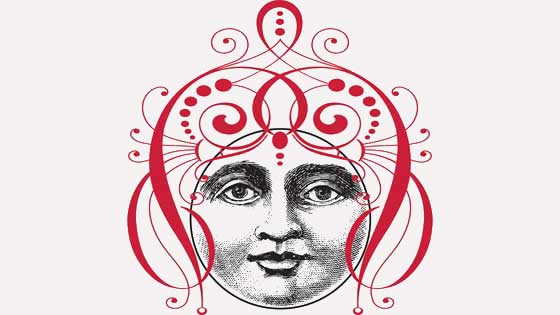
The Magic Oracle is a FREE site but I still must pay dastardly server fees! Please, donate ANY amount... $1, $5, $10, why not $1 million?
THANK YOU for keeping magic alive... and me, a Jolly Genie!

